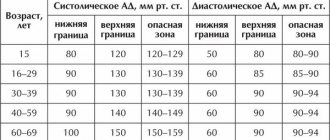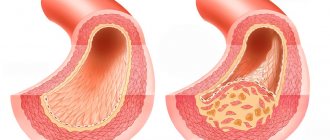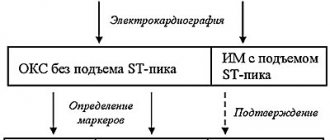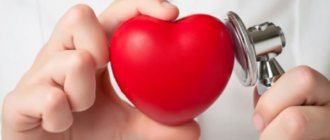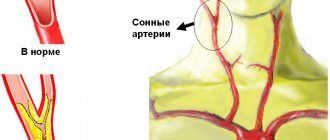Author Irina Gusakova
27.09.2020 17:10
Health » Health and prevention
Most of us find it difficult to imagine our morning without a drink that invigorates the mind and body... We are used to thinking that vigor arises from the caffeine contained in the drink. However, caffeine itself does not give vigor as such.
When we are excessively tired or lack of sleep, our body produces a substance called adenosine. When adenosine receptors are “activated,” it is difficult for a person to focus on work, and symptoms of drowsiness characteristic of a state of fatigue appear.
Benefits and harms
The principle of caffeine is that it forces our body to draw energy from reserves saved for a rainy day.
But it is worth remembering one important nuance: too much caffeine can lead to chronic fatigue. In this case, the body will take longer to recover than usual.
In addition to caffeine, the drink contains a huge amount of vitamins, micro- and macroelements, and natural oils. For example, a small amount of freshly brewed coffee can cover the daily requirement:
- gland,
- manganese,
- vitamins PP, B1, B2.
It has been proven that with rational consumption, coffee can fight headaches. It maintains balance in the endocrine system and, thanks to the antioxidants contained in coffee beans, slows down the aging of the body.
Recent studies have shown that coffee also improves liver function and improves the prognosis of chronic liver diseases.
Moreover, coffee, although indirectly, still has a beneficial effect on our psycho-emotional state. 15 minutes alone with yourself and a fragrant drink in the morning can set the mood for the whole day. As you know, positive emotions prolong life and improve health.
With all of the above beneficial properties of coffee, there is still an opinion that caffeine has a negative effect on the cardiovascular system. In particular, it is assumed that coffee can cause arrhythmia and lead to surges in blood pressure.
So does coffee affect the cardiovascular system? Oleg Volkov, a cardiologist and medical director of Angioline, shared his opinion
“A person’s sensitivity to caffeine depends on genetic predisposition, age, and general somatic condition,” says Oleg Volkov. — Recent studies have shown that moderate coffee consumption (about 3 cups per day) not only does not harm the body, but, on the contrary, reduces mortality from cardiovascular diseases and even overall mortality from all causes. In contrast, the above-mentioned risks are higher for those who do not drink coffee at all or drink too much (more than 5-6 cups per day).”
Can coffee make your heart hurt?
The answer to this question is very ambiguous. On the one hand, coffee does not cause heart disease. In reasonable quantities, for most people the drink is not only not harmful, but also beneficial, as it trains the cardiovascular system and contains magnesium and potassium. On the other hand, by stimulating the nervous system, caffeine can cause overexcitation, increase blood pressure, and if there are problems, they manifest themselves. That is, coffee is not the root cause, but a catalyst.
However, if you drink more than 5-6 cups of strong coffee a day, constant overstimulation can lead to heart and vascular diseases.
That is, you need to monitor your well-being and take into account existing illnesses. Modern scientists believe that a cup of coffee in the morning does not harm anyone if there is no heart disease.
Coffee and heart disease
- If you have a rapid heartbeat or arrhythmia, it is advisable to give up coffee or drink weak coffee. But if arrhythmia is accompanied by a slow heartbeat, a cup of coffee will help save you and significantly improve your well-being.
- Hypertensive patients are not recommended to drink strong coffee, since their blood pressure is already high.
- If you have coronary heart disease, if your blood pressure is already low, you should definitely drink coffee. As soon as you feel nauseous, weak, trembling in your hands or cold sweat, it means your blood flow has weakened and you need to cheer yourself up with a cup of coffee or take caffeine tablets.
The effect of coronavirus on blood vessels
As noted above, the SARS-CoV-2 virus binds to ACE2 receptors in the endothelial cells lining human blood vessels. Since these cells are involved in the control of blood clots, scientists hypothesize that if the endothelium is damaged by the SARS-CoV-2 virus, the regulation of the blood clotting system is disrupted, resulting in the formation of blood clots .
Damage to the walls of blood vessels can also provoke inflammation and blood clots, which can lead to a heart attack, stroke or pulmonary embolism (PE) . Due to increased blood viscosity, thrombus formation, and vascular damage, acute myocardial infarction may occur. The risk of an attack remains even after discharge from the hospital.
In addition to large vessels, coronavirus also affects small vessels, in which hemorrhages occur from blood clots blocking them.
In patients with a history of chronic diseases of the cardiovascular system before infection with the SARS-CoV-2 virus, there are already changes in the walls of blood vessels (plaques, blood clots, thickenings). COVID-19 worsens the condition of blood vessels, which in turn can lead to a blood clot breaking off and leading to a subsequent heart attack.
Thus, as a result of the action of the SARS-CoV-2 virus, an excessive immune reaction, and side effects from the use of medications, some patients with coronavirus may experience pathologies of the heart and blood vessels after coronavirus, such as:
- tachycardia (rapid heartbeat);
- arrhythmia (rhythm disturbance);
- heart failure;
- inflammation of the myocardium (myocarditis);
- thrombosis;
- pulmonary embolism (PE);
- stroke;
- myocardial infarction, atypical heart attack.
Symptoms of dysfunction of the cardiovascular system:
- pain in the heart area;
- shortness of breath, feeling of lack of air;
- back pain between the shoulder blades, in the shoulder or left arm;
- discomfort in the chest;
- pallor, bluish tint to the cheeks, nose, lips, limbs;
- a cough that is not associated with a cold or flu and does not go away after taking an expectorant; increased heart rate;
- swelling in the limbs, which intensifies towards the end of the day;
- interruptions in heart rhythm;
- absent-mindedness, fatigue, constant anxiety for no reason;
- sleep problems;
- lack of appetite;
- hyperemia;
- increased sweating.
If you have had COVID-19 and are bothered by one or more of the above symptoms, contact your cardiologist immediately for advice. The doctor will select treatment and, if necessary, refer you to a phlebologist or cardiac surgeon for consultation.


